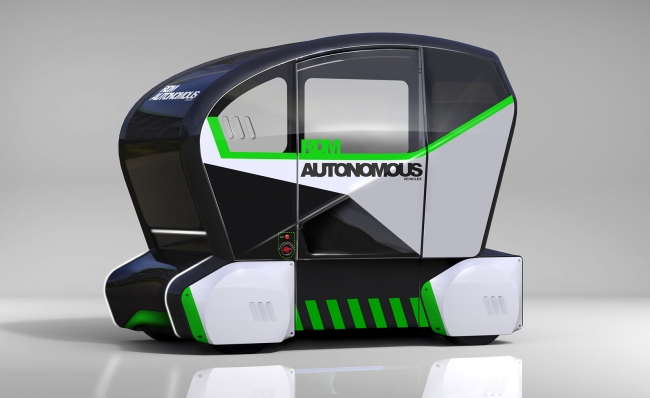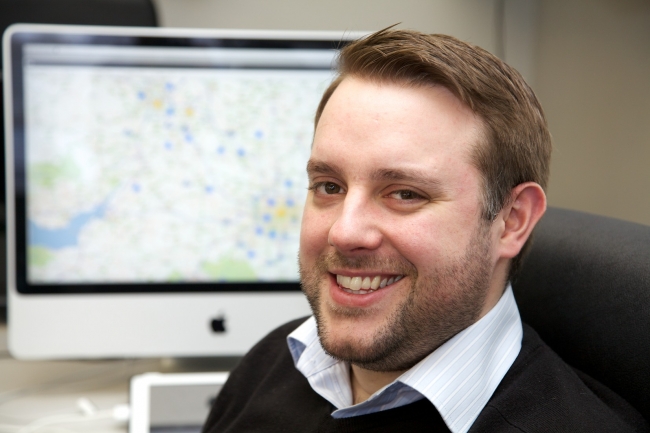3 minute read
Coventry manufacturer to lead driverless vehicle study
RDM Group has secured funding to lead a project that is looking to alleviate congestion in one of the UK’s fastest growing cities.
The Coventry-based autonomous vehicle specialist is working with Cambridgeshire County Council and Wellcome Genome Campus to deliver a £250,000 feasibility study that will explore the business case for a future £3m – £5m self-driving shuttle service across two routes that will connect key employment sites in Cambridge with other transport options.
Part funded by Innovate UK, the company will utilise their existing four and eight-seater Pod Zero, as well as looking at the case for designing and manufacturing larger shuttles of up to fifteen seats if demand dictates.

The RDM Pod Zero autonomous vehicle / Picture: RDM
The areas under examination will be an existed guided busway at Trumpington Park serving the Cambridge Biomedical Park, whilst the second will be a driverless shuttle service between the Wellcome Genome Campus and Whittlesford Parkway Railway Station on a new off-road pathway.
“Self-driving vehicles are a flexible, responsive, transport service that operates in conjunction with existing train, bus and park and ride services that can make a real impact, improving mobility around Cambridge by reducing congestion and providing first and last mile travel options,” explained Dr Richard Fairchild, Director of Connected and Autonomous Mobility Programmes for RDM Group.
“The feasibility study is the first step in making this project a reality and giving two strategically important sites in Cambridge the opportunity to benefit from a more connected transport network that could benefit up to 15,000 workers and thousands of visitors every day.”
He continued: “The new Whittlesford pathway would be fully autonomous, whilst the busway is planned to extend the existing service to a 24-hour operation, especially important for the Addenbrooke’s hospital site.”
Martin Dougherty, Chief Operating Officer of the Wellcome Trust Sanger Institute and Wellcome Genome Campus said:
“The Wellcome Genome Campus is not only a world-leading centre for genomic research, but it is also a green campus. We employ a wide range of high-tech solutions to minimise our impact on the environment. Exploring how driverless electric vehicles could provide our staff with easy access to the nearby rail station may offer opportunities to further minimise our carbon footprint.”
The feasibility study will investigate key questions about the demand and impact of such a service on the areas involved, the type of vehicles and connected systems required, the best routes for the service and what is the right operating model.
RDM Group, which has recently announced offices in Australia and the US, will design and manufacture a larger version of its four and eight passenger self-driving pods to suit the location and customer needs, with all pods also able to accommodate wheelchairs, mobility scooters and bicycles.
The company will also look at developing vehicle to vehicle (V2V) and vehicle to infrastructure (V2I) communications to enable platooning of shuttles along the guided busway, as well as handling real-time video feeds for safety, security and management of vehicles.
Noelle Godfrey, Programme Director for the Connecting Cambridgeshire and Smart Cambridge programme, which is supported by the Greater Cambridge City Deal, concluded:
“We welcome the success of our bid to Innovate UK for this collaborative project, which is testament to the power of local Councils, Universities and business working together in Greater Cambridge to find innovative solutions to improve the transport infrastructure.
“This project will complement Smart Cambridge’s on-going work with others to help transform the way people travel into, out of and around the city.”

Dr Richard Fairchild, RDM Group’s Director of Connected and Autonomous Mobility Programmes / Picture: RDM